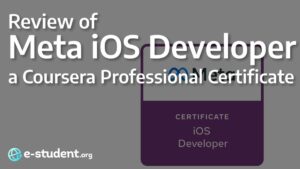Have you ever spent an entire day in a conference room, learning about the newest ways to do your job?
Or a mandatory “continuing education” weekend relearning your credentials?
Have you had to take a road trip or hop on a plane to get to the hotel where you’ll be spending your weekend?
You make small talk with coworkers you see once a year at these training events and then you leave with only a few hours of instruction.
It’s a pain.
You’re passionate about continuing education, but every time these corporate learning events come around…
It’s a logistical nightmare.

You’d much rather offer the training online. That way, your staff can participate from the comfort home, at their own pace, and when it’s convenient for them.
If your kids’ schools can figure out how to make learning easier for the students, your company should be able to as well.
Introducing: corporate e-learning.
Small and large businesses alike are increasingly turning to eLearning platforms. They’re cheaper, more convenient, and more effective than traditional in-person education events.
Employees love it because the education requirements are less of a burden. They have access to all the tools they need and can continue to meet or exceed the companies’ training requirements.
Here’s what you’ll learn in this guide to corporate e-learning.
Corporate E-Learning
What is the definition of corporate e-learning?
One of the benefits that many large and medium-sized companies provide is career growth. To offer the same, you need to support your employees with education and training.
Some companies also have mandatory compliance training — covering topics like workplace safety and anti-harassment training. Because outside forces can regulate this kind of corporate education, it is essential to the company’s ability to operate.
Traditionally, training courses like this have only been offered in-person. They can be as simple as a workshop that takes place during a workday, while others are multi-day conferences that require employees to travel and employers to pay big money.

Corporate e-learning is an alternative method for conducting employee training and education. Using one of the many software systems available, companies deliver the classes and training online. And just like that, the in-person training becomes virtual.
In other words, corporate eLearning is instruction provided online — specifically developed for the corporate environment’s needs and demands. It can be identical to the traditional format and available online or in a more accessible form that’s only available because the course is virtual.
For example, instead of cramming an entire HR department staff into a hot, stuffy training room, companies can offer their employees HR law training online.
Instead of listening to a few people present information at the front of the room, training is formatted to be more engaging and effective. With more options available when using online learning, companies can increase employee retention and understanding.
Is online learning really good for employees?
Do employees benefit from implementing corporate online courses?
If it’s cheaper for the company, it must not be as good, right?
It turns out to be better for employees than traditional corporate training courses. However, it must be noted that e-learning does have some significant drawbacks that must be addressed.
Because most traditional corporate training follows a rigid model — especially in larger companies that have well-developed curriculums and structure — they aren’t as employee-friendly as they could be.
There are seven different types of learners. Filing employees into a conference room and presenting information serves 1 or 2 of those styles. Although most adults have adapted to learning what they can from these formats, eLearning offers a more inclusive alternative.
To start, most companies that offer e-learning are using a Learning Management System (LMS). Depending on which platform you use, there are many ways to create learning paths that facilitate a greater variety of learners.
For example, auditory learners will do fine with a traditional lecture-style method of information delivery — but visual learners can use augmented or virtual reality online to fully understand the information. We’ve covered the usages of virtual reality (VR) in education in greater detail in the past.

Adults who have a hard time focusing for long periods can access their courses from anywhere, at any time. This allows them to learn in short bursts when they’re most inclined to grasp and retain the material.
Ellis and Kuznia found that employees have a very positive perception of eLearning.
“56.4% [of surveyed employees] believed that their career opportunities and advancements from eLearning experience was enhanced.”
Although employee perception is also determined by the environment and culture of corporate learning, the majority decided that “eLearning was an effective tool for training and development.”
E-learning benefits employees who have access to it.
How do companies benefit from e-learning?
E-Learning is exceptionally cost-effective. This is likely the most quantifiable, tangible benefit. Up to 60% of corporate training costs are associated with travel — which is practically reduced to zero with eLearning.
There is an increased cost from using an LMS to deliver the corporate training, but statistic after statistic shows a drastic decrease in cost:
- DOW Chemical reduced their education cost from $95 per learner to $11 per learner.
- Shell reduced some of its costliest training programs by 90% through employing eLearning.
- Airbus reduced their training costs by millions of dollars by creating an eLearning library.
In an interesting revelation, even as companies decrease their training and education costs, implementing those programs increases employee morale.
Most adults are looking for career development. If a company doesn’t offer these benefits, employees are less loyal to their job. Without investing time and money into staff development, companies will see decreases in employee satisfaction.
When employees have access to continuing education online, they’re more likely to report higher job satisfaction and higher job productivity. Although worker happiness might not have a discernible dollar amount attributed to it, increased productivity is good for the company.
When average employee tenure is down and costs to hire replacement employees are up, providing corporate eLearning programs is a way to boost employee development and retention.
Online corporate training even provides a way to recruit from within. Because you can develop your own curriculum, design lessons specifically for employees to map their career path, and be assured they’ll be trained to your standards — it’s a fantastic way to invest in your human capital.
Corporate online training programs also enable companies to close any skill gaps you might have. Custom eLearning programs come with flexibility and adaptability that allows corporations to quickly create learning tracks and bring up the whole organization’s skill level.
Many eLearning businesses partner with companies to create the curriculum for them or work alongside the HR managers and training partners to develop the most relevant and useful learning programs.
Ongoing education is a key component of employee satisfaction. Implementing e-learning programs is the most effective way to offer this. Therefore, corporate eLearning is an easy choice for companies.
What kinds of online corporate training platforms are there?
It’s better for the employees. It’s better for companies.
But what kind of experience can you expect from corporate eLearning?
The eLearning environment will look different for every company. But certain formats are standard throughout many instructional programs.
Corporate partnerships with Massive Open Online Courses (MOOCs)
With the explosion of growth in MOOCs, businesses have increased started partnering with them to meet staff education needs. Resources like guided projects and learner management pose a great option for corporate eLearning in small to medium businesses.
E-Learning platforms like Coursera and Udemy provide their platform to businesses. They allow employees to access the massive library of courses available in their library. Companies can create custom learning paths for employees and develop tailored curriculums for their industries.
Because companies immediately gain access to the existing library of courses, this provides a quick and easy way for you to implement employee training into your business. It creates an immediate sense of the weight you place on staff education.
This is also a great way to provide soft skills & life skill training without developing your own courses. These platforms have many options to help your employees find a work-life balance.
This poses an excellent option for smaller to medium businesses, who need a solution for corporate eLearning with a smaller initial investment.
Corporate instance of an LMS
As companies grow in size and training and procedures become more specific to your business operations, your learning and development process needs to change.
You need a more robust option.
You want the freedom and flexibility to develop full-fledged, sophisticated training courses for your employees — courses that will enable continued growth. Courses that will grant your staff access to the best education options you can provide.
Software like SAP Litmos or Lessonly provide robust solutions for your corporate training needs:
- Use modern education techniques like gamification and customized learning paths to increase your employees’ learning outcomes.
- Create seamless onboarding processes so your new staff can learn about your company, the expectations of their roles, and how to hit the ground running.
- Gain data and insights into how your students are using the LMS and make more informed decisions around training objectives and areas of improvement.
Regardless of the platform you choose, using an LMS for your business’s online learning needs is a great way to customize the education and training of your employees. You can enable them to take control and ownership of their continued education.
What's next for you and corporate e-learning?
Corporate e-learning is one of the biggest, fastest-growing industries in the world. The vast majority of corporations nowadays already use online learning, and the trend is irreversible.
However, to make effective use of e-learning, you need to develop a comprehensive and detailed digital learning plan, rather than a few haphazardly put together MOOCs.
Creating digital employee training programs requires time, resources, and dedication – perhaps even more so than traditional training methods. Only those who are able to harness the true power of e-learning can reap its’ benefits.
Not sure how to hone in on your best option? Browse our e-learning guides to learn more about the state of e-learning today.



